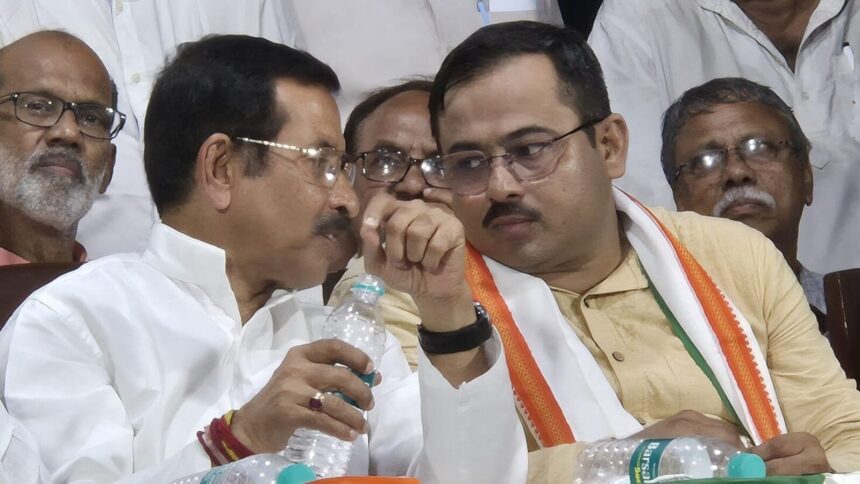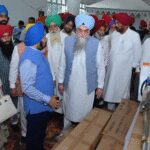Economist and social activist Prasenjit Bose officially joined the Congress party in Kolkata on September 15. At 51, Bose is a recognized figure in West Bengal’s social and political landscape, having previously resigned from the Communist Party of India (Marxist) in 2012 due to disagreements over the party’s support for Pranab Mukherjee’s presidential candidacy.
Bose was notably active as a student leader at Jawaharlal Nehru University (JNU) and is renowned as a strategist for the CPI(M)-backed Students’ Federation of India (SFI) during the mid-1990s to early 2000s.
Notably, Bose is not the first former Left leader to switch to Congress; at least eight previous JNUSU presidents from Left organizations have made similar transitions. The formal event marking Bose’s entry into Congress was attended by Congress leaders Syed Naseer Hussain and Kanhaiya Kumar, both of whom have Left affiliations.
In an interview with LiveMint, Bose discussed his motivations for joining Congress, the party’s prospects in West Bengal, the decline of the Left, and challenges facing India’s economy amidst global trade tensions.
When asked why he decided to join Congress, Bose stated, “The central challenge before the people is how to defend the Constitution of India from the multi-pronged assaults launched by the ruling regime at the Centre.” He emphasized the need for both legal action and grassroots mobilization to combat perceived threats to the Constitution, noting the inspiring mass mobilization efforts under the leadership of Rahul Gandhi.
Regarding Congress’s future in West Bengal, Bose asserted that the party plays an essential role amid the recent rise of the Bharatiya Janata Party (BJP), which he attributed to communal polarization strategies. He described the Trinamool Congress (TMC) regime as representative of corruption and state-sponsored violence, highlighting pressing issues like economic stagnation and inadequate employment opportunities.
Bose pointed out that the TMC-BJP dichotomy must be addressed, and he believes Congress is capable of filling the political void left by the declining Left. He noted that the Left once dominated for 34 years but has lost its mass support in the face of TMC and BJP consolidation.
He further explained that under Rahul Gandhi, Congress has taken a progressive turn at the national level, advocating for marginalized communities—a stance appealing to the Left’s former constituencies. Bose stated that the causes of workers, farmers, and marginalized groups still resonate, presenting an opportunity for Congress to occupy the political space previously held by the Left.
When asked about the transition from the Left to Congress, Bose revealed his personal connection to Congress, stating, “At a personal level, not many people know that I come from a Congress family.” Politically, he emphasized that the current threat to India’s secular democracy necessitates this shift.
He also discussed upcoming elections in West Bengal and emphasized the importance of grassroots movements, particularly during the electoral roll revision process. He mentioned plans for a Voter Adhikar movement, with Congress expected to play a significant role.
Addressing economic concerns, Bose expressed a negative outlook on the Indian economy, noting a decline in the growth rate and rising unemployment. He criticized the government for manipulating statistics, highlighting the adverse effects on the populace.
Bose remarked on the mistaken assumptions of the Modi government regarding trade positioning during the US-China trade tensions, pointing out that India has become increasingly penalized, particularly amid the Ukraine war and its implications for oil imports.
When asked if he intends to run for office, Bose replied that he would be actively involved in grassroots mobilization and is prepared to contest the assembly elections if necessary. His commitment to effectively intervening through Congress remains firm as he navigates these political challenges.










